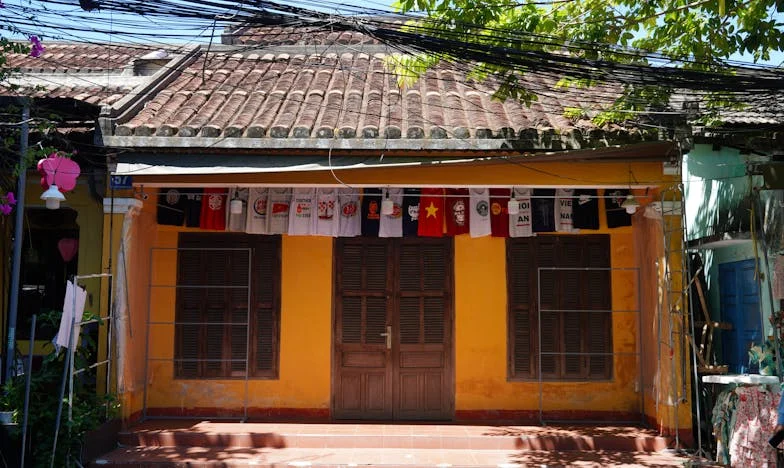Broken Porcelain, Broken Bonds: A Grandmother’s Choice
“Halina, how could you?” Danuta’s voice cut through the morning stillness, sharp enough to make my hand jerk, the porcelain cup clattering against its saucer. Tea spilled across the faded tablecloth, blooming in slow-motion red. On any other day, I might have apologized for the mess, but today, I stared at that spreading stain like it was a wound refusing to close.
“It’s not your business, Danuta,” I snapped, pressing the phone tighter against my ear, as if I could block out the rest of the world. “You don’t know the whole story.”
Danuta’s sigh was heavy, thick with judgment. “They’re your grandchildren, Halina. You can’t just shut the door on them. Not after everything.”
Everything. That word. It meant late nights in the hospital waiting room, divorce papers shuffled across the kitchen table, the echo of my daughter’s angry footsteps leaving for good. It meant the silence that had settled into my house and my bones, thick as the dust I kept sweeping but could never quite erase.
I hung up before she could say more, my chest tight. She was right, of course. But I couldn’t let her know that.
The first time I refused to see the boys, it was a Sunday. My daughter, Rachel, stood on the porch, her two sons behind her, clutching action figures and wearing hopeful smiles. I watched them through the curtain, heart pounding, as Rachel knocked.
“Mom, we just want to talk,” she called, her voice muffled. “They miss you.”
I said nothing. Eventually, they left, and I sat in the dark with my excuses. I told myself I was protecting them from the worst of me—the bitterness, the disappointment. I told myself they’d be better off never knowing why their mother and I stopped speaking, why I couldn’t forgive her for leaving her husband, for the choices she made.
But the truth was, I was scared. Scared that seeing them would mean seeing her, and that I’d have to admit that I’d failed as a mother.
My son, Brian, called that night. He never liked confrontation, but his voice was cold. “You didn’t even open the door. Do you know what that does to them?”
I wanted to scream that I was hurting too. That every photo Rachel posted on Facebook—birthday parties, Halloween costumes, the boys growing taller without me—felt like a knife in my chest. But I just listened to him breathe on the other end, and when the silence grew too heavy, I hung up.
Weeks passed. The phone rang less. The house grew quiet, except for Danuta’s occasional calls, her voice always carrying that same blend of concern and disapproval. I tried to fill the void with chores—scrubbing floors, organizing closets, alphabetizing spices—but nothing could drown out the memories.
One afternoon, I found an old drawing tucked into a cookbook: a stick-figure family, two boys and a woman with curly hair, all holding hands. “Grandma Halina” was written in shaky crayon beneath. My chest ached. I pressed the page to my heart and wept, the tears hot, unstoppable.
I remembered the last Thanksgiving before everything fell apart. Rachel and her husband had fought at the table—hushed voices, sharp glances, the boys pretending not to notice as they shoveled mashed potatoes. After dinner, Rachel pulled me aside, eyes red. “I can’t do this anymore, Mom. I need to leave him.”
I’d snapped. “Marriage isn’t easy. You can’t just run away.”
She’d stared at me, wounded. “I’m not running away. I’m saving myself.”
I didn’t believe her. I thought she was being selfish, careless with the family we’d built. When she left, I refused to take sides. But that was a lie, and everyone knew it.
Now, I wondered what would have happened if I’d listened. If I’d offered comfort instead of judgment, a hand instead of a wall. Maybe Rachel would have come home more. Maybe the boys would know the sound of my laugh, the taste of my Sunday pancakes.
The guilt gnawed at me, day and night. I watched the world move on from my window—kids riding bikes, neighbors grilling in their yards, families laughing together—and I felt like a ghost haunting my own life.
One evening, Danuta knocked on my door. I almost didn’t answer. But something in her voice, softer than before, made me open it a crack.
“I brought you some soup,” she said, holding out a steaming container. “And I wanted to say… I’m sorry for pushing. I just hate seeing you alone.”
I took the soup, hands shaking. “Thank you.”
She hesitated. “It’s never too late, Halina. Maybe you could call them.”
I nodded, but the thought of dialing Rachel’s number made my heart race. What would I say? Sorry for shutting you out? Sorry for not believing you when you needed me most?
That night, I sat at the kitchen table, the boys’ drawing spread before me, Danuta’s soup warming my hands. I picked up the phone, stared at Rachel’s name, thumb hovering. I didn’t call. Not yet. But I wanted to. For the first time, that want felt bigger than my fear.
In the quiet, I whispered to the empty room, “How do you fix something so badly broken?”
Maybe someone out there knows. Do you?
